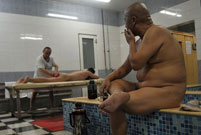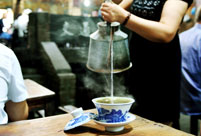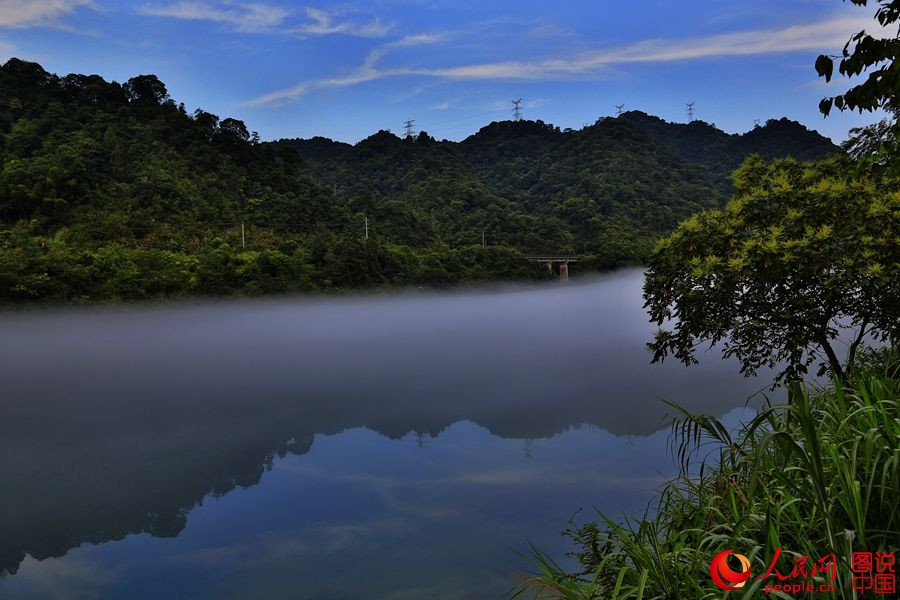It is lamentable that during the four-nation European tour of Philippine President Benigno Aquino III in mid-September, en route for the US, he made the issue of the South China Sea the topmost item on his agenda with the leaders of the host nations.
Of course, the leaders of Spain, France, Germany, Belgium and the EU when personally confronted by Aquino, could not but endorse his position that the Philippines has sought international arbitration to the territorial dispute involving China and the Philippines.
It would be discourteous, if not uncivil, for German Chancellor Angela Merkel or French President Francois Hollande for example, to try to dissuade or convince Aquino to go slow with China and settle its country's differences with its neighbor in some other way aside from internationalizing the sensitive issue.
China has never threatened to disturb the peace in the region. It has time and again said that it is willing to resolve the issue peacefully through bilateral negotiations with the other claimant countries but without the intervention of any third country.
The leaders of Europe certainly know China's stance on the issue.
Aquino also cited the "remarkable economic performance" of the Philippines, even belittling the record of his predecessor in his speech at a forum organized by the Egmont Institute, a think tank in Brussels.
Nobody could quarrel with Aquino on his stellar role in pushing the country's economy forward. Indeed, there is no gainsaying that Aquino's anti-corruption drive has energized the ailing economy of the Philippines which, for a long time, was described as the "sick man of Asia."
But what the investors in Europe and in the US, the last leg of his two-week foreign trip, probably wanted to hear is what his administration is doing to curb the rising crime rate, especially kidnapping, in the Philippines.
Data from the Movement for the Restoration of Peace and Order show that from January to August this year, there were 33 incidents of kidnapping across the country involving 50 victims.
Of the 50 victims, 17 of them were Filipino-Chinese, locally called Tsinoys.
Of the 50 victims, 29 were freed, one escaped, three were rescued, and one was killed.
The recent upsurge of kidnappings and other crimes in the Philippines has prompted the Chinese government to issue an advisory warning for its citizens not to travel to the Philippines in the meantime.
As a result of the Chinese advisory, the country's budget airlines, Cebu Air Inc. (Cebu Pacific) and Tiger Airways Philippines, have cancelled 149 chartered flights to and from Chinese mainland starting this month.
The cancellation will strike a blow to the country's tourism industry of millions of dollars in potential revenues.
This is what Aquino failed to mention, even in passing, to his audience in Europe.
 Female bus driver drives Land Rover for commuting
Female bus driver drives Land Rover for commuting Top 3 iOS 8 features Chinese love most
Top 3 iOS 8 features Chinese love most Century-old public bath closes door in Beijing
Century-old public bath closes door in Beijing Teahouses in Chongqing: Worship to the leisure lifestyle
Teahouses in Chongqing: Worship to the leisure lifestyle Leading director Wang Quan'an detained for 'buying sex'
Leading director Wang Quan'an detained for 'buying sex' Heaven on earth: Dongjiang Lake in Hunan
Heaven on earth: Dongjiang Lake in Hunan Mixed reaction to smartphone sidewalk
Mixed reaction to smartphone sidewalk Amazing aerial photos of China's Xisha Islands
Amazing aerial photos of China's Xisha Islands Top 10 world's highest-paid models 2014
Top 10 world's highest-paid models 2014 Lingerie show at 2014 Miss China
Lingerie show at 2014 Miss China Songstress Li Xianglan dies at 94
Songstress Li Xianglan dies at 94 Police recruiting posters
Police recruiting posters Anshun Daxi- Living fossil of Chinese drama
Anshun Daxi- Living fossil of Chinese drama Urban farmers in China
Urban farmers in China 'Firepower-2014 Weibei'military exercise
'Firepower-2014 Weibei'military exerciseDay|Week|Month